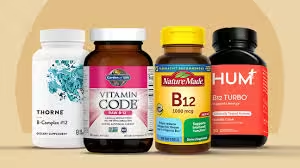
COVID-19 Explained: Symptoms, Pre-cautions and Treatment
In December 2019, a novel coronavirus (SARS-CoV-2) emerged in Wuhan City and rapidly disseminated around the world, leading to COVID-19 pandemic. With the world increasingly learning to adjust to its ongoing challenges, it is important for people worldwide that you continue educating yourself on coronavirus symptoms as well ways of prevention and treatment. Through this blog, we will be able to go through all of these aspects in an elaborated manner.
What is COVID-19?
COVID-19 is short for “Coronavirus Disease 2019,” identified in Wuhan, China initially. It is believed to be caused by the SARS-CoV-2 virus, which belongs to the type of coronavirus. Virus spreads mainly by respiratory droplets when an infected person coughs, sneezes and talks. It could also be transmitted from contact with surfaces infected.
Symptoms of COVID-19
Patients with COVID-19 may experience mild to severe symptoms, which can be as serious enough to cause hospitalization or death. Common symptoms include:
1. Fever: Early sign; typically with chills and sweating.
2. Cough– Often dry and persistant
3. Shortness of Breath: Trouble breathing or feeling short of breath
4. Fatigue: feeling more tired than normal or suffering from a loss of strength.
5. Muscle or Body Aches: Generalized stiffness and discomfort.
6. Change in Taste or Smell: Any change in taste and/or smell.
7. Sore Throat: When your throat feels irritated or scratchy.
8. Congestion or runny nose — nasal symptoms like a cold
9. Headaches – Chronic frequent or severe headaches.
10. Nausea or Vomiting– These can be gastrointestinal symptoms and sometimes occur with COVID 19.
Some people are totally symptomless, so they carry and share the virus with everyone without being aware. But in more severe cases, symptoms can worsen and may include a high fever, difficulty breathing, chest pain or confusion, bluish lips / face. If you have any of the preceding bad symptoms, go to your doctor now!
Hot to avoid COVID-19, Pre-Cautions
Stop COVID-19: In What Way Does the Spread of Virus (COVID) Be Controlled by Some Personal Habits and Public Health Measures. Precautions to be taken are:
1. Vaccinations: One of the best ways to prevent you from getting seriously ill is by being vaccinated. Empirical evidence shows this to be effective in reducing the risk of severe outcome, and transmission far below 50%.
2. Hand hygiene: Wash your hands often with soap and water for at least 20 seconds, especially after you have been in a public place or if you touched your face. Wash your hands frequently with soap and water or clean them with an alcohol-based hand rub.
3. Masks — Wear a mask when you are in crowded settings or indoors if physical distancing is not possible, particularly where transmission rates are high. Masks Masks can help combat the spread of respiratory droplets.
4. Stay Physically Distant: Keep more than six feet away from others, especially in confined or poorly ventilated spaces.
5. Avoiding Crowded Places: Do not encourage large crowds and allow gatherings to avoid being exposed.
6. Practice Proper Respiratory Hygiene: Cover mouth and nose with tissue or elbow when coughing/sneezing. Throw your Kleenex in the trash and then go wash those grubby hands.
7. Ventilation: Enhance the quality of your indoor air by enhancing ventilation grounds. Whenever possible, open windows and doors to ensure that there is a good cross-ventilation of fresh air.
8. Self-Isolation: Does someone you are providing care for have a proven case of COVID or is it likely that they were exposed?
9. Monitoring and Testing : Regular check your health for symptoms, if you feel some or been in close contact with anyone who has the virus. They can help determine and contain from where cases came.
Treatment for COVID-19
Treatment of COVID-19 is symptomatic. Here’s a general overview:
1. Mild Cases: Many people with mild cases can treat their symptoms at home. Recommended care includes:
– Rest – Make sure to get enough sleep that will help your body defeat the virus.
Moisturizing: Drinking ample fluids will help you remain hydrated.
– Over-the-Counter Medications: the use of medications like acetaminophen or ibuprofen to assist with fever, pain control.
2. Those With More Extreme Symptoms or Underlying Health Conditions — For those who have more severe symptoms or who are in a high-risk group立 (e.g. older adult with underlying health conditions) may require medical intervention to address their illness. Treatments may include:
Antiviral Medications: Medications like Paxlovid and Remdesivir can help to decrease the viral load, decreasing symptoms.
Oxygen Therapy: If you are having trouble breathing, your health care provider may recommend that you receive oxygen.
Hospitalization: Milder cases may need admission to the hospital for basic treatment, actually encounters backing and mechanical ventilation in outrageous events.
3. Supportive Care: This is important for all patients regardless of the severity. These will help to control symptoms, monitor vital signs and to manage any further complications that may arise.
Long term considerations and follow up
Others suffer from ongoing health problems after they’ve recovered, a condition now known as “long COVID.” But serious symptoms can linger or even develop after the initial infection, like fatigue and joint pain. If you have any symptoms that do not get better or pertain longer after the time of recovery, please seek help from your healthcare provider to further investigate and manage as necessary.
Conclusion
COVID-19 has changed our world on various levels, however the way to cope with it is by knowing how COVID- 19 symptoms appear and can be treated. We will be living in this pandemic We need to keep updated and follow the recommendations of public health Remember to stay aware, stay safe & get medical help when in doubt. Combined, however, we can best this challenge and come out the other side strengthened as a global community.
Stay safe and healthy!












